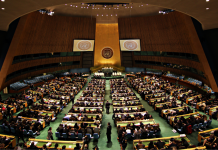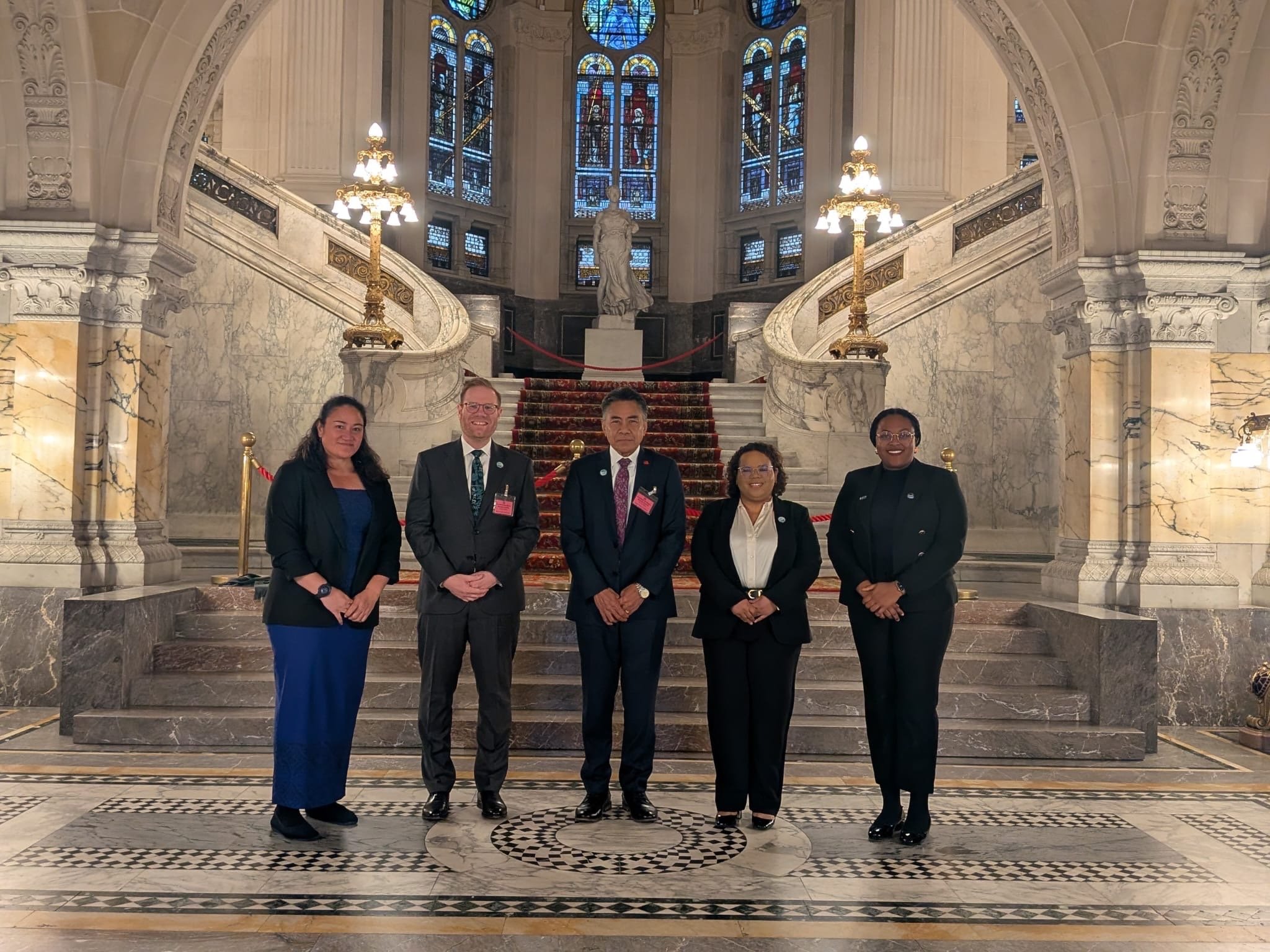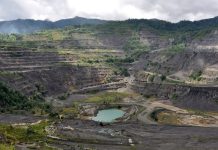The Alliance of Small Island States (AOSIS) has delivered a powerful plea to the International Court of Justice (ICJ) in The Hague, calling for urgent legal measures to address the existential threat posed by climate change and rising sea levels.
Representing 39 small island and low-lying coastal developing states, Samoa’s Permanent Representative to the United Nations, Ambassador Fatumanava-o-Upolu III Pa’olelei Luteru, laid bare the devastating impact of climate change on some of the world’s most vulnerable nations.
“It is an honour to deliver this submission on behalf of AOSIS. “As states defined by the ocean, limited resources, and geographic vulnerabilities, the effects of climate change and sea-level rise cannot be understated. They threaten the well-being of our peoples, communities, cultures, ecosystems, food security, livelihoods, and traditional knowledge,” Ambassador Luteru said.
He painted a grim picture of the challenges facing small island developing states (SIDS). These nations, whose economies rely heavily on coastal and marine resources, are grappling with the dual impact of warming oceans and rising sea levels. Beaches and coral reefs vital to the tourism sector are eroding, while fisheries—central to both food security and livelihoods—are being disrupted by shifting marine ecosystems.
“For low-lying atolls, saltwater intrusion into freshwater supplies is exacerbating water scarcity,” Ambassador Luteru explained. “The cost of adaptation, such as desalination facilities, places an enormous financial burden on our already stretched resources.”
Beyond economic and environmental losses, SIDS face profound cultural disruptions. Coastal erosion and sea-level rise are threatening historical sites, traditional practices, and social structures. Referring to a video submission by Grenada, Ambassador Luteru noted, “These environments are integral to our social and cultural identities, and their loss strikes at the heart of who we are as a people.”
Luteru emphasised that the global legal framework must adapt to the unprecedented challenges of climate change. He urged the ICJ to recognise the disproportionate impact of climate change on SIDS and to ensure their voices are central to shaping international law.
“In this era of relentless sea-level rise, international law must evolve to meet the climate crisis,” he said. “We already have many of the tools needed to do this, but we must interpret and apply them to the realities of this new era.”
AOSIS’s submission focused on four key legal principles:
*Acknowledgment of SIDS as specially affected states. Ambassador Luteru argued that the ICJ should give greater weight to the unique vulnerabilities of SIDS in shaping international law.
*The duty of international cooperation. This principle is foundational to environmental law, Ambassador Luteru said, and essential to tackling the shared challenge of climate change.
*Stability of maritime zones. Ambassador Luteru called on the ICJ to affirm that rising sea levels must not alter maritime boundaries, which are critical to the sovereignty and economic rights of SIDS.
*Continuity of statehood and sovereignty. Even as territories face the risk of land loss, Ambassador Luteru urged the court to recognise the ongoing statehood of affected nations.
Ambassador Luteru highlighted the central role that SIDS have played in advancing international climate policy over the past three decades, from the establishment of the United Nations Framework Convention on Climate Change (UNFCCC) to the Paris Agreement.
He argued that the contributions of SIDS must carry greater weight in shaping customary international law and interpreting treaties.
“The practice of specially affected states is not about enhancing the power of the already powerful,” he said. “It is about equity—ensuring that those most affected by circumstances they did not create have their perspectives and practices meaningfully considered.”
Ambassador Luteru pointed to existing legal frameworks, including the UNFCCC and the Paris Agreement, which explicitly recognise the vulnerabilities and needs of SIDS. These provisions, he argued, must be upheld and expanded in the ICJ’s advisory opinion.
The AOSIS Chair also highlighted the unprecedented engagement of small island states in the ICJ proceedings, with 28 SIDS submitting statements—many for the first time.
“This represents more than a quarter of all submissions,” Luteru said. “It is clear evidence of our commitment to addressing the critical issues before the court.”
Ambassador Luteru concluded his remarks with a direct appeal to the ICJ to help secure a future for SIDS in the face of mounting climate threats.
“Mr President and distinguished Members of the Court, our survival is on the line. The situation of SIDS must not only be taken into account as a matter of equity but also as a fundamental principle in the development of international law. We urge the court to give due consideration to our plight and to ensure that the rights and futures of small island states are safeguarded in this era of climate crisis,” Ambassador Luteru said.














